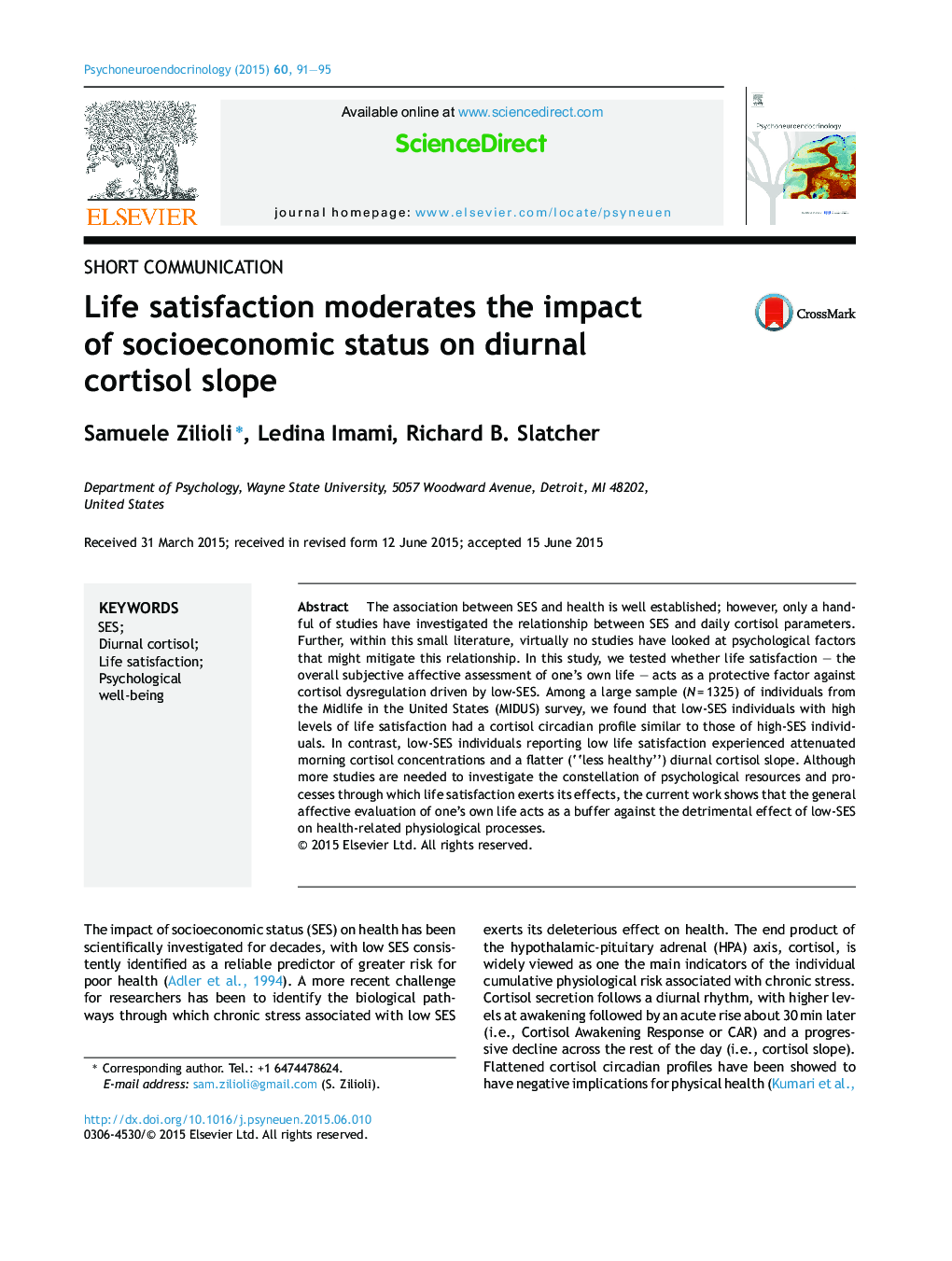| Article ID | Journal | Published Year | Pages | File Type |
|---|---|---|---|---|
| 6818692 | Psychoneuroendocrinology | 2015 | 5 Pages |
Abstract
The association between SES and health is well established; however, only a handful of studies have investigated the relationship between SES and daily cortisol parameters. Further, within this small literature, virtually no studies have looked at psychological factors that might mitigate this relationship. In this study, we tested whether life satisfaction - the overall subjective affective assessment of one's own life - acts as a protective factor against cortisol dysregulation driven by low-SES. Among a large sample (NÂ =Â 1325) of individuals from the Midlife in the United States (MIDUS) survey, we found that low-SES individuals with high levels of life satisfaction had a cortisol circadian profile similar to those of high-SES individuals. In contrast, low-SES individuals reporting low life satisfaction experienced attenuated morning cortisol concentrations and a flatter (“less healthy”) diurnal cortisol slope. Although more studies are needed to investigate the constellation of psychological resources and processes through which life satisfaction exerts its effects, the current work shows that the general affective evaluation of one's own life acts as a buffer against the detrimental effect of low-SES on health-related physiological processes.
Related Topics
Life Sciences
Biochemistry, Genetics and Molecular Biology
Endocrinology
Authors
Samuele Zilioli, Ledina Imami, Richard B. Slatcher,
